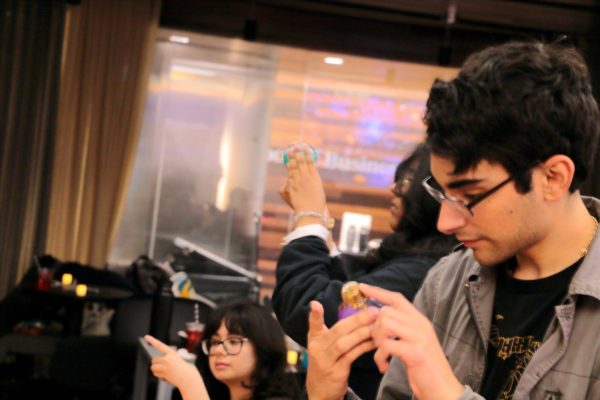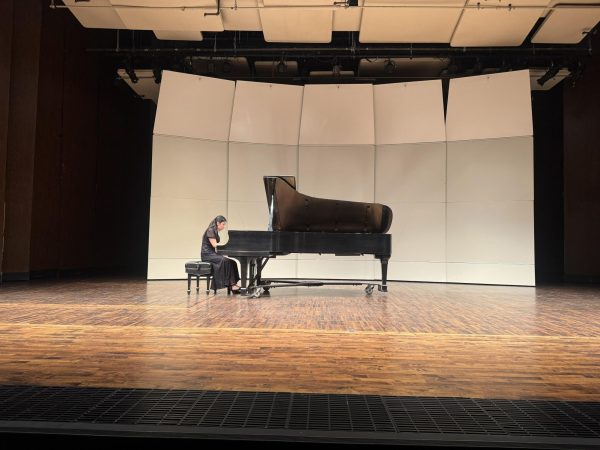OUWB hosts ‘Global Health Lunch ‘n Learn’ to promote healthcare volunteer programs overseas
The Global Health Lunch ‘n Learn series presented by Oakland University William Beaumont faculty on Feb. 21 featured Peggy Ann Nowak, M.D. in otolaryngology at Royal Oak Beaumont Hospital and Matthew Chetta, M.D. in plastic surgery at Royal Oak Beaumont Hospital.
Both doctors discussed what motivates them to leave their practice for multiple weeks each year to volunteer globally, as well as what it’s really like to work as a practitioner in another country.
As a doctor of Otolaryngology, Nowack deals with conditions of the ear, nose and throat and related structures of the head and neck. In addition to being a doctor of Otolaryngology, Nowak is the executive director of physician wellness at Beaumont and associate professor of surgery at OUWB. Nowak was the first female surgeon at Beaumont and began practicing there in 1987.
Since 2007, she has traveled to Nicaragua two to three times a year. She goes to Nicaragua to promote sustainable hearing, health and deaf education.
“The reason that we initially traveled to Jinotega, Nicaragua, was because in the U.S. we kept getting reports of high incidence of hearing loss there,” Nowak said. “We were eager to try and find out what was going on in that area.”
Nowack and her team quickly figured out the causes of hearing loss that was occurring within the residents of Jinotega.
“One was Gentamicin, which was extremely cheap in Nicaragua,” she said. “If a parent has a sick child, for 25 cents they can go to the pharmacy and get an injection of Getamicin, and the local people felt that taking an injection was much better than taking a pill.”
The team of physicians had to educate pharmacists and families about the dangers of this antibiotic.
“The second reason was simply infections as a lot of children were not receiving any kind of treatments for ear infections,” Nowak said. “The third reason we found was genetics.”
The next speaker was Dr. Matthew Chetta who grew up in a small town in rural northeast Georgia. He began his global medical involvement as a young child, first working as a translator in orphanages in Moscow with his father who was a physician. When he got older and went through medical school, he shifted his focus to providing medical education in clinics throughout Ukraine.
While working in these clinics, he began to identify multiple issues causing deformities and disabilities in patients. Throughout this experience he decided to pursue plastic and reconstructive surgery in an effort to be able to travel overseas and help those in need.
“Hospitals and clinics sometimes have good medicines and vaccines but lack the infrastructure–refrigerators, clean syringes and nurses–to keep them safe and adequately deliver them,” Chetta said. “Our team comes in an effort to improve these impoverished medical conditions.”
In doing work abroad, Chetta experienced a different form of hospital organization than he was familiar with back in the states.
“While working overseas, many hospitals would keep track of their patients with one giant whiteboard,” Chetta said. “They would literally write down in tiny boxes which patients needed immunizations, which patients were due to give birth, and that system worked for them somehow.”
Medical volunteering is a key means of gaining experience in global health. As doctors, both Nowak and Chetta are providing greater understanding of the impact that diseases have worldwide, thus providing an opportunity to examine alternative treatment approaches adopted in other healthcare systems.




